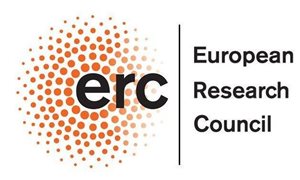
Post-translational modifications of proteins are indispensable drivers and regulators of essentially all cellular processes. They do so by affecting protein properties such as folding, trafficking and (enzymatic) activity.
Among well-studied modifications, ADP-ribosylation is the least known in terms of its structural molecular details and regarding the proteins that are involved in its turnover and recognition. These shortcomings can be explained by the properties of ADP-ribose (ADPr)-based modifications such as the labile linkages with target amino acids in proteins, the complex polyanionic structure, and its dynamic nature. ADP-ribosylation plays a pivotal role in controlling cellular processes including the DNA damage response and deregulation of ADP-ribose signalling and has been linked to a number of diseases, including immune disorders and cancer. Hence, identification of components of the ADP-ribose signalling network is of great scientific importance.
Michiel Vermeulen and Kasia Kliza, theme cancer development and immune defense (from Faculty of Science of Radboud University and part of the interfaculty Radboud Institute for Molecular Life Sciences), collaborated with Qiang Liu and Dima Filippov (Leiden UMC) to synthesize biotinylated ADPr-based probes that would enable identification of ADPr readers and determination of their specificity towards mono- and polyADPr.
These probes were then used for affinity purifications in crude lysates combined with relative and absolute quantitative mass spectrometry to generate the first proteome-wide ADPr interactomes, including the determination of apparent binding affinities. Amongst the main findings, mono-ADPr and poly-ADPr interactors, also called ADPr ‘readers’, regulate various common and distinct processes, such as the DNA damage response, cellular metabolism, RNA trafficking and transcription.
The team also monitored the dynamics of polyADPr interactions upon induction of oxidative DNA damage and uncovered new mechanistic connections between ubiquitin signalling and ADP-ribosylation. Taken together, chemical biology enables the exploration of ADPr readers using interaction proteomics. Furthermore, the generated ADPr interaction maps significantly expand our current understanding of ADPr signalling. In the future, targeting certain ADPr – reader interactions may turn out to be beneficial from a therapeutic perspective. These results were published in the journal Molecular Cell.
Related news items

T cell immunity is directed by tetraspanin CD53
5 July 2022 T cells are immune cells that are key for the defense against pathogens and cancer. T cells depend on the membrane protein CD45 to initiate T cell receptor signaling, but how CD45 is controlled at the molecular level is poorly understood. go to page
A single protein complex balances the very first lineage decision of cells in human: towards foetus or placenta
21 June 2022 The international group of researchers spearheaded by Dick Zijlmans and Hendrik Marks together with colleagues from KU Leuven, examined which proteins are associated with the chromatin and how this affects gene transcription. go to page
Dutch Society of Clinical Chemistry Science & Innovation Award for the team of Hans Jacobs
14 June 2022 The team of Hans Jacobs pioneers on the development of personalized diagnostics to measure minimal residual disease in patients with multiple myeloma. go to page
European grants for groundbreaking Radboudumc research Professors Roshan Cools and Peter Friedl receive ERC Advanced Grant
26 April 2022The European Research Council (ERC) is awarding grants to Roshan Cools and Peter Friedl, both professors at Radboudumc. While Cools will investigate how brains control behaviour in (stressful) situations, Friedl will work on developing a new cancer therapy.
go to page
Saponin-based adjuvant-induced dendritic cell cross-presentation is dependent on PERK activation published in Cellular and Molecular Life Sciences
20 April 2022 Lisa Huis in ‘t Veld, Nataschja Ho and colleagues from the team of Gosse Adema published in Cellular and Molecular Life Sciences that Saponin-based adjuvant-induced dendritic cell cross-presentation is dependent on PERK activation. go to page
Rubicon grants awarded to three RIMLS researchers
19 April 2022Three researchers have received Rubicon funding from NWO/ZonMw. This will enable Elke Muntjewerff, Laura de Vries and Laurens van de Wiel to do research at a foreign research institute for the next two years.
go to page